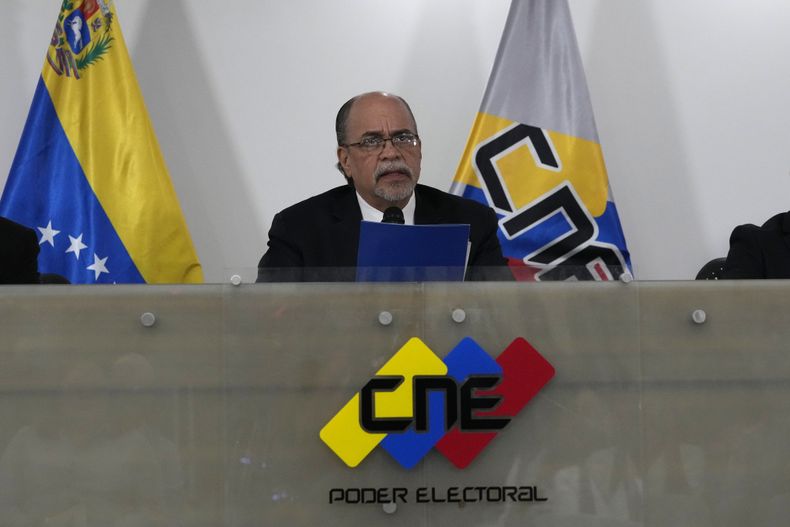“The appointment of the new board of directors of the Council is essential,” said the president of the Assembly, Jorge Rodríguez, without explaining the reason why it was decided to include the rectors who had not resigned in the review process. The decision leaves open the possibility of removing from their posts the two executives linked to the opposition, Enrique Márquez and Roberto Picón.
After accepting the resignations, Rodríguez announced that all of the five principal rectors of the Council and their 10 substitutes will be elected, without giving other details. The Council is in charge of organizing national, state and municipal elections in the country.
The measure was taken two hours after the president of the Council, Pedro Calzadilla, announced that together with Alexis Corredor, also the principal rector, and five other members of the electoral body linked to the ruling party, they had placed their “positions at the order” of the Assembly.
The selection of the new members will take place two years after, among a series of measures adopted by the Maduro government to improve relations with the United States and the European Union, it made the concession to include in that body, for the first time since 2005, to two recognized opponents.
Although most of the council members elected in May 2021 to serve for seven years were officials close to the Maduro government, Márquez and Picón inspired confidence in some opponents.
The election of the new directors will take place at a time when Maduro’s opponents are struggling to regain political relevance and four months before the primaries to choose a single candidate for the 2024 presidential elections.
The opposition has not yet defined the infrastructure that will be used in the electoral act and was awaiting a decision from the Council on its attendance under certain conditions, despite the rejection of several leaders. In the last two decades the Council has been seen as pro-government.
The Democratic Unitary Platform, which represents a sector of the opposition, declared itself in permanent session before the possibility of “self-managing” the process. The participation of the electoral body was waiting for guarantees such as the installation of enough voting centers and the updating of the electoral roll, among others.
Until now Márquez and Picón have remained silent.
Former legislator Márquez was vice president of the National Assembly by consensus after the opposition seized control of the legislature after winning the 2015 elections by an overwhelming majority. Picón, for his part, was jailed between June and December 2017 for organizing a vote symbolic and parallel when the opposition boycotted Maduro’s referendum to name a Constituent Assembly. The computer systems engineer was released on the recommendation of the so-called Truth Commission of the Constituent Assembly.
Tania D’Amelio, a former pro-government legislator who had been serving as the Council’s main rector, resigned in April last year after being appointed magistrate of the Venezuelan highest court, controlled by the pro-government party. Her understudy never took office.
D’Amelio was sanctioned on August 9, 2017 by the US Treasury Department and in February 2021 the European Union included her among the 19 officials sanctioned for contributing to undermining the rule of law in Venezuela.
FUENTE: Associated Press


